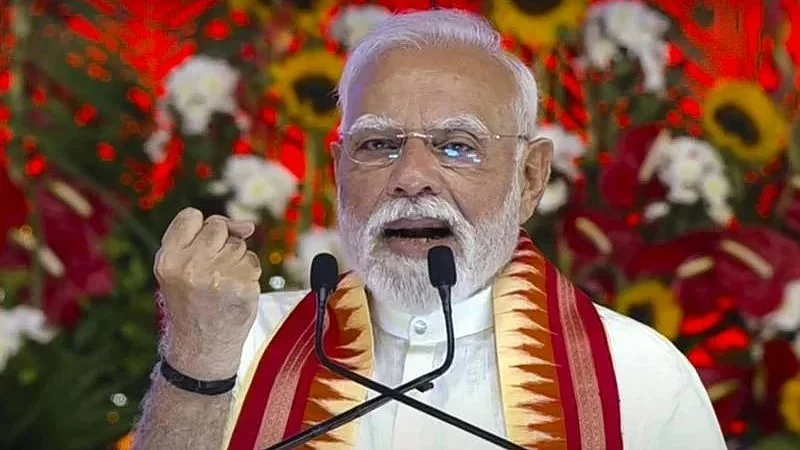US tariffs: PM Modi invokes Lord Krishna, Gandhi as experts warn of economy blues
PM claims India is empowered by ‘Sudarshan Chakradhari Mohan Lord Shrikrishna’ and ‘Charkhadhari Mohan Mahatma Gandhi'

Without providing any cohesive response to the United States imposing 50 per cent tariffs on Indian exports beginning 27 August, Prime Minister Narendra Modi repeated his claim on Monday that he wouldn't compromise on interests of farmers, cattle-rearers, and small-scale industries, maintaining that "pressure on us may increase, but we will bear it".
“For Modi, interests (sic) of farmers, cattle-rearers and small scale industries are paramount. Pressure on us may increase, but we will bear it all,” the prime minister claimed ahead of the 27 August deadline for 50 per cent US tariffs on Indian imports.
The PM claimed that India is empowered by chartering the path of "Sudarshan Chakra dhari Mohan Lord Shri Krishna" who symbolised strength, and "Charkha dhari Mohan Mahatma Gandhi", who promoted swadeshi (local manufacturing) with his spinning wheel.
The prime minister was addressing a gathering in his home state Gujarat. His rhetoric emerges two weeks after former Reserve Bank of India (RBI) governor Duvvuri Subbarao warned that the tariffs proposed by US President Donald Trump on labour-intensive exports including textiles and gems will intensify the jobless growth crisis.
Subbarao reportedly estimated that a 50 per cent US tariff endangers exports worth around 2 per cent of the total GDP.
But it isn't merely the former RBI governor who pointed out the anticipated impact of Trump’s tariffs. Ernst and Young’s chief policy advisor D.K. Srivastava told PTI that the tariffs could cut off up to 50 basis points from India’s GDP, lowering growth from an earlier projection of 6.5 per cent to around 6.0 per cent.
Additionally, Bloomberg Economics projected that exports to the US could plunge by up to 60 per cent, potentially dragging down GDP by 1 per cent, with longer-term impacts possibly reaching 1.1 per cent.
Meanwhile, PM Modi blamed the Congress for the crisis by reasoning that the party ruled India for 60 to 65 years, which resulted in the nation being dependent on other countries.
It is important to mention that eminent economic historians like Amiya Bagchi have provided detailed accounts about how colonial rule by the British de-industrialised India and left local manufacturing devastated.
Senior Congress leader Shashi Tharoor's book An Era of Darkness explains in detail how British rule resulted in double exploitation in the form of destroying local manufacturing coupled with costly import of goods to India from Europe.
It is also important to note that Trump's ire against India is attributed to India's close cooperation with Russia, which it considers as an all-weather ally. Ever since Russia's invasion of Ukraine in 2023, the US has blamed India for buying Russian crude oil, a move which Americans perceive as being beneficial to Russia's economy.
In recent times, Trump aides have also brought up the question of India's arbitrage — processing the cheap Russian crude and selling it at far higher profits to other nations, though none of the benefits of importing inexpensive crude have percolated down to the average Indian consumer.
Follow us on: Facebook, Twitter, Google News, Instagram
Join our official telegram channel (@nationalherald) and stay updated with the latest headlines
